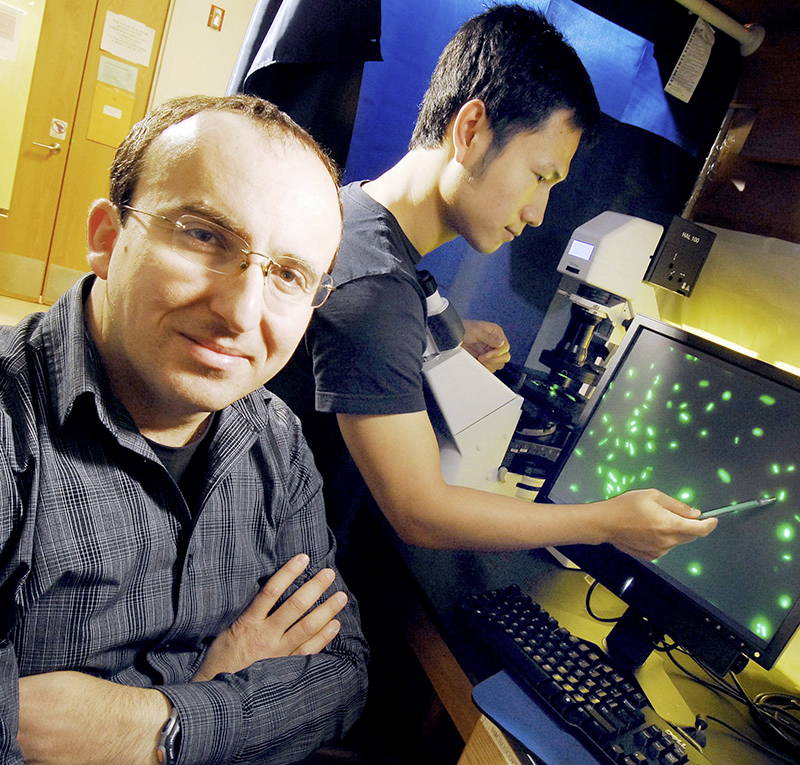Assistant professor and Carlton S. Wilder Chair Kostas Konstantinidis, along with co-authors from the University of Oklahoma, University of Florida, Los Alamos National Laboratory, Michigan State University, Lawrence Berkeley National Laboratory, Tsinghua University, and Georgia Tech's School of Biology will be featured as a spotlight article in an upcoming issue of American Society for Microbiology's Applied and Environmental Microbiology.
The interdisciplinary group's work was recently highlighted on the Applied and Environmental Microbiology website, as well as on Georgia Tech Research News, for efforts to better understand how complex soil microbial communities respond to natural or human-induced fluctuations, including major perturbations such as global climate change.
Story via Georgia Tech Research News:
As scientists forecast the impacts of climate change, one missing piece of the puzzle is what will happen to the carbon in the soil and the microbes that control the fate of this carbon as the planet warms.
Scientists studying grasslands in Oklahoma have discovered that an increase of 2 degrees Celsius in the air temperature above the soil creates significant changes to the microbial ecosystem underground. Compared to a control group with no warming, plants in the warmer plots grew faster and higher, which put more carbon into the soil as the plants senesce. The microbial ecosystem responded by altering its DNA to enhance the ability to handle the excess carbon.
“What we conclude from this study is the warming has an effect on the soil ecosystem,” said Kostas Konstantinidis, an assistant professor who holds the Carlton S. Wilder Chair in Environmental Engineering at the Georgia Institute of Technology. “It does appear that the microbes change genetically to take advantage of the opportunity given to them.”
The study was published online Dec. 27, 2013, in the journal Applied and Environmental Microbiology. The research was sponsored by the Department of Energy, and involved collaboration with several universities, including the University of Oklahoma.
The findings are the culmination of a 10-year study that seeks to understand how the most intricate ecosystem in nature — soil — will respond to climate change.
A single gram of soil is home to a billion bacterial cells, representing at least 4,000 different species. In comparison, the human gut is home to at least 10 times fewer different species of bacteria. Scientists have little idea what microbes in the soil do, how they do it, or how they respond to changes in their environment, Konstantinidis said. This limits the predictive capabilities of climate models.
“In models of climate change it is a black box what happens to the carbon in soil,” Konstantinidis said. “One reasons that models of climate change have such big room for variation is because we don’t understand the microbial activities that control carbon in the soil.”
Read the full story here. 
Georgia Tech assistant professor Kostas Konstantinidis (left) and former graduate student and study lead author Chengwei Luo examine E. coli cells. (Credit: Gary Meek)
